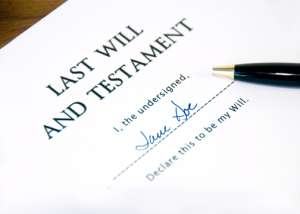
The gift of giving continues even after death.
It’s not uncommon for a parent to leave a sibling, friend or child something special to remember them by. The process through which this works is called a bequest.
There are four distinct types, and anyone considering devising a will should be familiar with them all.
What Are Bequests?
A bequest is a gift of personal property included in a will, which is given to the beneficiary upon the donor’s demise or when pre-stated conditions have been met. It can include monetary provisions, items and even real estate.
There are four different types.
- Pecuniary Bequest: In this bequest, the donor provides a fixed amount of money to a recipient.
- Specific Bequest: When specific bequests are in wills, it means the donor will provide a specific item.
- Residuary Bequest: After taxes, debts and other requests have been honored, a percentage or all the donor’s assets can be given through a residuary bequest.
- Contingent Bequest: These bequests are reliant on a certain condition, usually an event. Once the event has occurred, the gift can be appropriated.
Charitable Donations
Baby Boomers are expected to provide approximately $30 trillion in wills over the next few decades, resulting in a growing curiosity about the practices in wills and the conditions necessary to provide to charities.
Charitable bequests work in the same manner as the ones for individuals. Anyone can include a charitable bequest in his or her will.
According to a study by Dr. Russell James, a professor at Texas Tech University, over 80% of charitable bequest donations are supplied by citizens at or over the age of 80. The most charitable bequests are generated by unmarried citizens, with women providing more frequently and men giving more substantially.
Tips for Bequests
It all comes down to your personal preferences and what you wish to be passed onto whom.
Below are some tips to consider when including a bequest in your will:
- You can specify how beneficiaries may use your bequest.
- If you plan on providing to a charity, take into consideration the effects of time. The organization may have altered perceptions, mission statements or goals once the gift is ready to be provided.
- Consider the costs of taxes, funeral fees and legal fees before deciding on any sums.
- Double check the sum of your assets to ensure they are accurate.
- Don’t forget that your will can always be updated.
“For peace of mind alone,” states Rose Burberry-Martin, marketing director of the law firm Chisholm, Chisholm, and Kilpatrick LTD, “it’s never a bad idea to recruit an attorney. They know the ins and outs of the business, and they’ll ensure everything occurs exactly as you see fit.”
Keep Giving
Surveys indicate that 6 in 10 adults have not created a will.
We never know what life will bring, but isn’t it nice to think that—even after our last breaths—we can still give to others?
